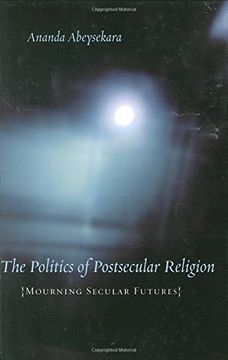The Politics of Postsecular Religion: Mourning Secular Futures (Insurrections: Critical Studies in Religion, Politics, and Culture) (in English)
Synopsis "The Politics of Postsecular Religion: Mourning Secular Futures (Insurrections: Critical Studies in Religion, Politics, and Culture) (in English)"
Ananda Abeysekara contends that democracy, along with its cherished secular norms, is founded on the idea of a promise deferred to the future. Rooted in democracy's messianic promise is the belief that religiouspolitical identity-such as Buddhist, Hindu, Sinhalese, Christian, Muslim, or Tamilcan be critiqued, neutralized, improved, and changed, even while remaining inseparable from the genocide of the past. This facile belief, he argues, is precisely what distracts us from challenging the violence inherent in postcolonial political sovereignty. At the same time, we cannot simply dismiss the democratic concept, since it permeates so deeply through our modernist, capitalist, and humanist selves. In The Politics of Postsecular Religion, Abeysekara invites us to reconsider our ethical-political legacies, to look at them not as problems, but as aporias, in the Derridean sense-that is, as contradictions or impasses incapable of resolution. Disciplinary theorizing in religion and politics, he argues, is unable to identify the aporias of our postcolonial modernity. The aporetic legacies, which are like specters that cannot be wished away, demand a new kind of thinking. It is this thinking that Abeysekara calls mourning and un-inheriting. Un-inheriting is a way of meditating on history that both avoids the simple binary of remembering and forgetting and provides an original perspective on heritage, memory, and time. Abeysekara situates aporias in the settings and cultures of the United States, France, England, Sri Lanka, India, and Tibet. In presenting concrete examples of religion in public life, he questions the task of refashioning the aporetic premises of liberalism and secularism. Through close readings of Nietzsche, Heidegger, Arendt, Derrida, Butler, and Agamben, as well as Foucault, Asad, Chakrabarty, Balibar, and Zizek, he offers readers a way to think about the futures of postsecular politics that is both dynamic and creative.

